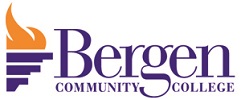Find your path to success with a diverse range of more than 120 degree, certificate, and continuing education programs.
Bergen Community College’s General Education Program is designed to foster the development of the skills and knowledge that are foundational and essential for professional and personal success. Put simply, General Education is Essential Learning.
The following eleven major learning outcomes describe the essential knowledge and skills that we expect of all graduates and are an organizing principle of the General Education Program. These outcomes are consistent with the NJCCC General Education Foundation Goals and simultaneously serve as Bergen’s General Education goals and Bergen’s Institutional Learning Outcomes. Critical thinking is infused in each outcome, and together they form the foundation for intellectual growth, lifelong learning and professional success. They were developed by the General Education committee during Fall 2023 and approved by the Faculty Senate in May 2024.
| Bergen Community College’s Essential Learning Outcomes |
| 1. Effective Speaking |
| 1.1 Students will express ideas clearly and persuasively through speech. |
| 1.2 Students will use speech effectively to contribute to discussions, dialogues, or debates, and in professional settings. |
| 2. Effective Writing |
| 2.1 Students will use writing to express ideas clearly and concisely. |
| 2.2 Students will demonstrate proficiency in grammar rules and syntax structures. |
| 2.3 Students will demonstrate proficiency in academic or professional writing, including focus, proper citation and the use of evidence to support arguments. |
| 3. Mathematical Reasoning |
| 3.1 Students will effectively communicate and apply mathematical concepts within and across disciplines. |
| 3.2 Students will analyze and solve mathematical problems. |
| 3.3 Students will interpret and critically analyze quantitative data. |
| 4. Scientific Reasoning |
| 4.1 Students will demonstrate an understanding of the scientific method. |
| 4.2 Students will test hypotheses, and analyze, interpret, and draw informed conclusions about natural phenomena, experimental results and empirical data in diverse scientific disciplines and real-world scenarios. |
| 4.3 Students will demonstrate knowledge of natural processes and their taxonomies. |
| 5. Technological Competency |
| 5.1 Students will be proficient in using a variety of technological tools and platforms. |
| 5.2 Students will critically apply new or emerging technologies to solve practical or professional problems. |
| 6. Information Literacy |
| 6.1 Students will evaluate the credibility and reliability of information. |
| 6.2 Students will locate authoritative sources when needed. |
| 6.3 Students will ethically and effectively create and use diverse forms of information. |
| 7. Social-Behavioral Analysis |
| 7.1 Students will analyze social structures and institutions and their impact on individuals and communities. |
| 7.2 Students will apply theories and concepts from the social and empirical sciences to analyze human behavior and contemporary social issues. |
| 7.3 Students will demonstrate knowledge of social science concepts and theoretical perspectives. |
| 8. Historical Analysis |
| 8.1 Students will demonstrate knowledge of the historical events, movements and trends that have shaped human societies and cultures. |
| 8.2 Students will analyze the ways in which historical contexts influence artistic and intellectual developments. |
| 8.3 Students will connect historical knowledge to contemporary issues and challenges. |
| 9. Humanistic Analysis |
| 9.1 Students will interpret and critically analyze works of literature, visual art, music, theater, philosophy, or religion. |
| 9.2 Students will demonstrate proficiency in the use of a World Language. |
| 9.3 Students will demonstrate knowledge of humanistic conceptual frameworks and theories of interpretation. |
| 10. Intercultural Awareness |
| 10.1 Students will demonstrate knowledge of world cultures and their interdependence. |
| 10.2 Students will analyze the role that cultural norms and values play in shaping attitudes, behavior, and identity. |
| 10.3 Students will demonstrate inclusivity, cultural sensitivity, and cross-cultural communication skills in interpersonal or professional interactions. |
| 11. Moral Literacy |
| 11.1 Students will reflect on personal values and develop a sense of moral identity. |
| 11.2 Students will apply ethical theories and principles to real-world scenarios or professional settings. |
General Education requirements refer to a program of General Education courses that students seeking degrees must take in order for them to acquire and demonstrate these Essential Learning Outcomes. In September of 2008, the State of New Jersey enacted the Lampitt Bill which pertains to the transfer of credits from two-year colleges to four-year institutions in New Jersey, including credits for General Education courses. The Lampitt Bill has had a major impact on the shaping of General Education at Bergen Community College as well as other community colleges in the state.
